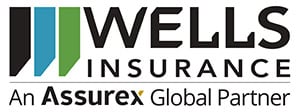Protecting Your Teen on the Job: What Every Parent Needs to Know

"Get a job kid!"
As parents, we all want to encourage our teenagers to gain independence, learn new skills, and start earning their own money. Whether it's a part-time job at the local diner or helping out at a nearby store, these experiences can teach them valuable life lessons. However, it’s crucial to be aware of the laws and safety measures designed to protect our children in the workplace.
Did you know that every year around 70 teenagers tragically lose their lives due to work-related injuries in the United States? Additionally, approximately 70,000 more are injured seriously enough to require emergency room visits. These sobering statistics underscore the importance of knowing the regulations that govern youth employment to ensure your teen is safe while they’re on the job.
Key Regulations for Teen Workers
Federal child labor laws are in place to prevent younger teens from overworking and to protect them from hazardous job conditions. Here’s what you need to know if your teen is between 14 and 15 years old:
- Work Hours: Teens in this age group cannot work before 7 a.m. or after 7 p.m. during the school year. Their workweek is limited to 18 hours when school is in session, with a cap of 3 hours on school days and 8 hours on weekends or holidays. During summer and school breaks, they can work up to 40 hours a week.
- Type of Work: Teens under 18 are prohibited from engaging in hazardous work, including driving motor vehicles, operating heavy machinery, or working in dangerous industries like roofing, mining, or meatpacking.
Protecting Your Teen from Workplace Hazards
Different industries come with different risks. Whether your teen is handling hot kitchen equipment, working in a retail environment with slippery floors, or dealing with heavy lifting, it's essential to be aware of these potential dangers. Educate your teen about the specific risks associated with their job and ensure they are following all safety protocols.
As a parent, you can play an active role in your teen’s safety by staying informed about their work environment and understanding the protective measures in place. Remember, a safe work experience is a valuable one.
To learn more about how to protect your teen in different industries, visit the DOL website.
What Can You Do Next?
Ensuring your teen's safety is just one aspect of protecting your family. As they take on new responsibilities, consider how your insurance coverage can support them—and you—through these changes. Here are some steps you can take:
- Review Your Insurance Policy: Make sure your current coverage reflects your family's needs, including any new risks associated with your teen's employment.
- Consult with an Insurance Advisor: Not sure if you're adequately covered? Contact us to discuss your policy and explore additional coverage options that might be right for your family.
- Stay Informed: Keep up with our newsletters to receive updates on important safety regulations, insurance tips, and ways to protect your loved ones.
Wells Can Help
Protect your family with the right coverage. Contact us today to review your policies and ensure your coverage meets your needs as your teen steps into the workforce.


